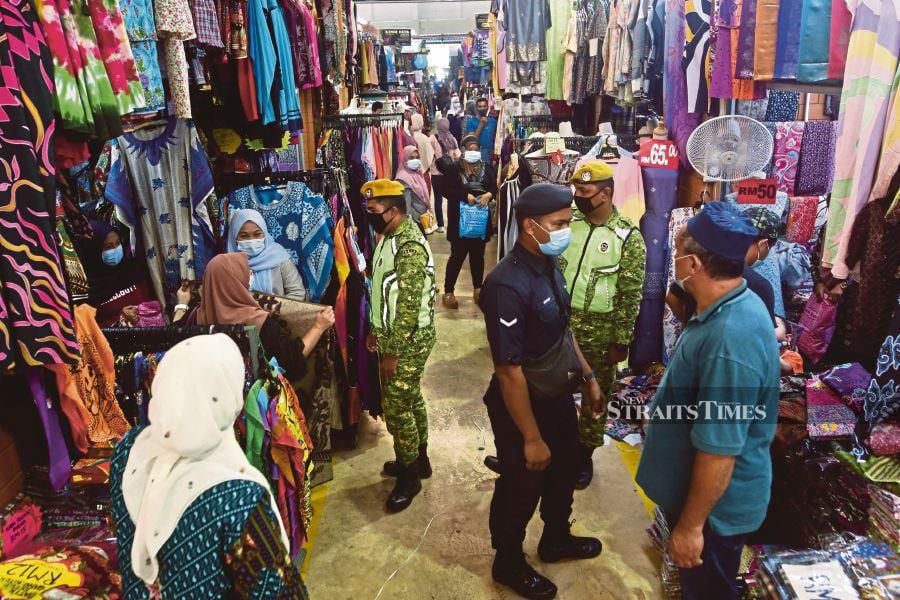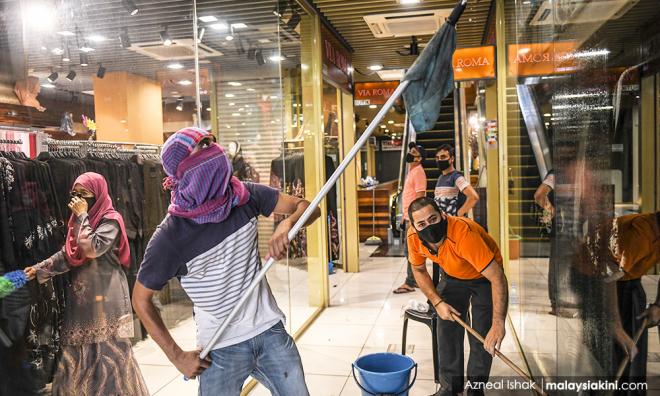
Published by New Straits Times & The Sun Daily, image from New Straits Times.
Since the relaxing of the Conditional Movement Control Order (CMCO), some people seemed complacent in adhering to the Standard Operating Procedures (SOPs).
The SOPs, which accompanied the reopening of the economy, have resulted in some positive developments in our country.
The performance indicator of the manufacturing sector, IHS Markit headline Purchasing Managers’ Index, registered 50 in July with improving new orders, surpassing expectations; total trade grew 2.2 per cent on a year-on-year basis in June while the trade balance expanded to RM20.9 billion compared with RM10.4 billion in May; the industrial production index surged 18.2 per cent on a month-on-month basis in May with expansion in all sectors, and the sales of wholesale and retail trade expanded by 26.3 per cent on a month-on-month basis in May after a decline in April.
Therefore, the relaxation order imposed by the government has boosted economic growth. Nonetheless, many appeared to have taken this decision lightly, resulting in the emergence of new clusters.
Some are triggered by imported cases as those who are infected do not comply with the Home Surveillance Order (HSO) while others were detected at the immigration depots.
For instance, a new cluster was reported from Kedah known as the Sivagangga cluster, triggered by a Malaysian resident who came back from Sivagangga, India, but did not adhere to the HSO.
He tested positive on a repeated Covid-19 screening and making it worse, he had made contact with other people.
As we begin to take a breather, having single-digit local cases, the latest health development is a setback.
The government’s previous decision to reopen the economy comes with a condition — people must adhere to the SOPs.
These new clusters led to the imposition of Enhanced MCO (EMCO) in some localities. There is a possibility of a complete reimposition of the MCO.
Health director-general Datuk Dr Noor Hisham Abdullah said on July 29 that the rise in local transmissions can lead to the reinforcement of the MCO or CMCO.
Let’s look at some countries or cities that are currently under a second round of lockdown measures.
Melbourne is back in a six-week lockdown beginning Aug 2 as it is experiencing a second wave of new cases. This has halted businesses related to retail, manufacturing and administration.
Manila is under a strict lockdown known as Modified Enhanced Community Quarantine (MECQ) for the next two weeks. During MECQ, only a limited number of businesses are allowed to operate and public transportation is shut down.
In the UK, the earlier plan to ease lockdown measures in Leicester on July 4 was cancelled in June because the city accounted for 10 per cent of the overall positive cases in the country.
So, if the MCO or CMCO were to be reinstated in Malaysia, it would be a big blow to the people and business disruptions would worsen the state of unemployment, which had already reached 5.3 per cent in May.
Furthermore, the reimposition of the MCO or CMCO will affect access to education by students due to digital barriers, namely Internet access, particularly those who live in rural areas.
Based on an official survey in 2019, Internet access by households stood at 90.1 per cent but not reaching 100 per cent suggests there are households with a lack of access or no access to Internet at all.
This was one of the issues emphasised by participants in Sabah during EMIR Research’s focus group discussion for our upcoming quarterly poll.
Lastly, should the MCO or CMCO be imposed again, inter-state travel would also be banned, thus wasting the ongoing efforts to boost domestic travel and spending.
As government stimulus packages such as Prihatin and Penjana begin to bear fruit in addressing the people’s burden and worries, cooperation from each individual in society is crucial. The keyword is social responsibility.
Nur Sofea Hasmira Azahar is Research Analyst at EMIR Research, an independent think tank focused on strategic policy recommendations based on rigorous research.

